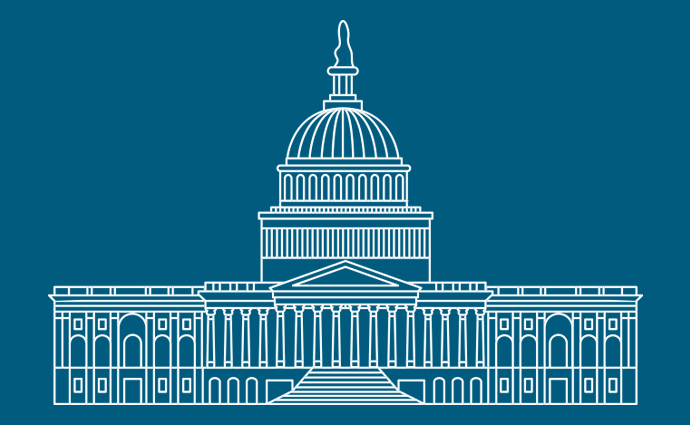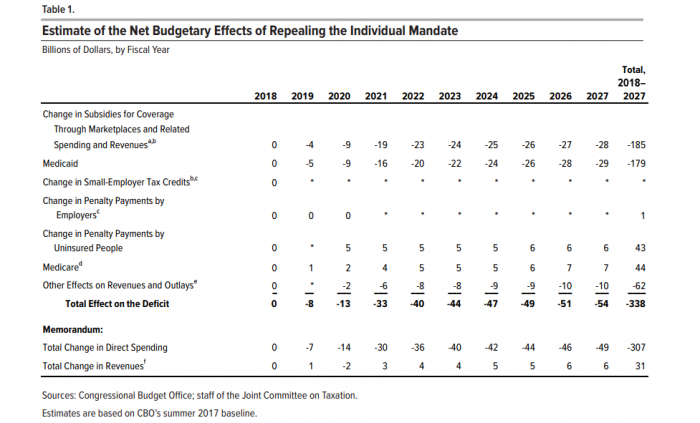ACA Individual Mandate Repeal Could Cut Insured Number By 13M
A potential repeal of the ACA’s individual mandate would cut millions from non-group insurance plans.

Source: Thinkstock
- As a potential repeal of the ACA’s individual mandate faces the US Senate, the Congressional Budget Office (CBO) and Joint Tax Committee (JTC) found that a repeal would cut the number of insured individuals by four million in 2019.
In an analysis released this week, CBO and JTC estimated that a repeal of the mandate would reduce the federal deficit by $338 billion between 2018 and 2027, but would continually decrease the number of insured individuals. CBO and JTC said that the number of uninsured individuals would reach 13 million by 2027.

Source: CBO and JCT
CBO and JTC also found that nongroup insurance markets would remain relatively stable following a repeal of the mandate, but premiums in these markets would likely increase by 10 percent per year between 2018 and 2027.
The findings are based on the idea that healthier people, who lower premiums for health plans, would not actively seek health insurance if they are no longer required to.
“Those effects would occur mainly because healthier people would be less likely to obtain insurance and because, especially in the nongroup market, the resulting increases in premiums would cause more people to not purchase insurance,” CBO said.
Medicaid and nongroup insurance beneficiaries would account for the largest total losses of coverage, with 5 million beneficiaries in each category losing insurance by the year 2027. National employer-based coverage total would also experience losses of two million beneficiaries by the end of 2027.

Source: CBO and JCT
CBO and JCT previously estimated that a repeal of the individual mandate would decrease the nation’s insured rate by 16 million, and concluded their report by saying the estimates could fluctuate in the coming months. However, both organizations are certain that a repeal of this policy would ease federal spending at the expense of insurance rates.
“Despite the uncertainty, some effects of this policy are clear: For instance, the federal deficit would be many billions of dollars lower than under current law, and the number of uninsured people would be millions higher,” CBO and JCT concluded.
